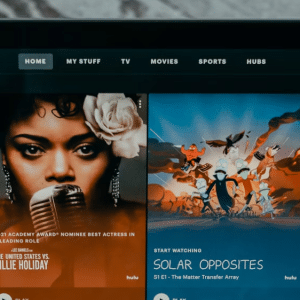It can be hard to land an interview in today’s job market, never mind actually getting the position. For new professionals and people looking to make a career change, the job search can be even more complicated. It’s challenging to compete when you’re still establishing your career history.
Stand out from the crowd with letters of recommendation from trusted mentors, managers, and other professional authorities in your life. Letters of recommendation aren’t just for college applications. With these personalized endorsements, you can go a step beyond merely providing references.
A letter of recommendation describes your unique history of success and growth. Learn how to use letters of recommendation as a working professional, including tips on how to solicit the best letters, who can write a recommendation for you, and how to use your recommendations for continued success throughout your career.
Stand Out In Your Job Search With Letters Of Recommendation
Today’s job market is competitive. Most postings receive many qualified applicants, and only the most promising candidates are moved from the stack of resumes onto the interview list. It can be hard for anyone to get a foot in the door, but new or inexperienced job seekers face an especially hard challenge. When you’re searching for your first professional position or are looking to change careers, it can be difficult to stand out from other hopefuls. Letters of recommendation can help highlight your unique skills and value proposition. Learn about using letters of recommendation in a business setting, including how to establish skills worth recommending, who to ask for a letter, and how to leverage these recommendations throughout your career.
Laying The Groundwork For A Letter Of Recommendation
Before asking for a letter, you must do the foundational work of proving you’re worth a recommendation. These letters are a form of personal capital, where you’re asking established professionals to put their reputation on the line for you. Make sure to establish a positive work history that’s worth recommending.
You can start building your professional reputation in any position, regardless of your current industry, title, and job history. Focus on doing your job to the best of your ability. Look for opportunities to go above and beyond, and keep a record of any positive feedback you receive. Employee evaluations, awards, customer compliments, top rankings, and similar qualifications are helpful milestones for letters of recommendation.
Who To Ask To Recommend You
The most valuable letters of recommendation come from people who can speak to your holistic work capabilities. This person should be well-acquainted with your quality of work, demeanor, track record, and growth. Your boss or manager at work is usually a good candidate to ask for a letter of recommendation. Depending on your career history, you may also ask your commanding officer, volunteer supervisor, academic advisor, professor, or another authority figure.
When you’re thinking of who to ask for a recommendation, you should focus on professional, volunteer, and academic relationships. Think of a letter of recommendation as an elaborate professional reference. It’s not considered appropriate to list family and friends as a reference, so don’t turn to them for a recommendation, either. These relationships have a deep emotional component that’s best kept out of the workplace.
Make Your Recommender’s Job Easy
Someone who writes you a letter of recommendation is doing you a favor. You can help them by providing all the information needed to do a great job.
When you identify someone to write a letter, ask to meet with them for a few minutes. Whether you see this person every day or you haven’t been in touch for a while, you can show respect for their time by setting up a meeting.
Next, prepare a packet of information to leave with your mentor. You can draft a brief letter that highlights what you’re asking and how you hope to use their letter. For example, if you’re applying for a specific position at your dream company, include a copy of the job posting. If you’ll be using your letter for a more general search, provide details on the type of work you hope to do. Include a copy of your resume and any industry-standard documents, such as transcripts or portfolios.
Finally, be clear about how you will use their letter of recommendation and any logistical details. If you’re hoping to have your letter by a certain date or in a particular format, include this request. Be sure to follow up after they write your letter. A nice thank-you note, coffee, or lunch is a thoughtful way to keep in touch.
Using Letters Of Recommendation In Your Job Hunt
Letters of recommendation aren’t standard requirements in most industries, so your letter is a valuable piece of supporting documentation in your job search. You should include the letter with applications where relevant. Try attaching it in application portals that allow you to upload multiple documents. In applications that only let you submit a set number of files, such as one resume and one cover letter, consider saving your letter of recommendation as the second page of your cover letter.
You should also highlight the content of the letter in your applications. Consider quoting especially meaningful lines in your cover letter. When you include snippets of your recommendation throughout your application, this increases the chances the hiring manager will read the full letter.
Repurposing Letters Of Recommendation
A letter of recommendation is useful in your job hunt, but you can also leverage your recommendations throughout your career. If you maintain your own professional website or blog, consider creating a Recommendations page. You can also highlight your recommendation on LinkedIn and other social platforms. The person who wrote your letter may be willing to endorse skills on LinkedIn, which can expose you to a new network of contacts. Recommendations and endorsements are valuable throughout your career because they show a track record of diligence and success.
If you plan to reuse your letter, make sure your letter writer agrees to have their recommendation used for this purpose. Most people who recommend you will be happy to share their recommendations widely, but it’s best to be clear with your intentions. This helps your mentor remain confident in your motivations.








